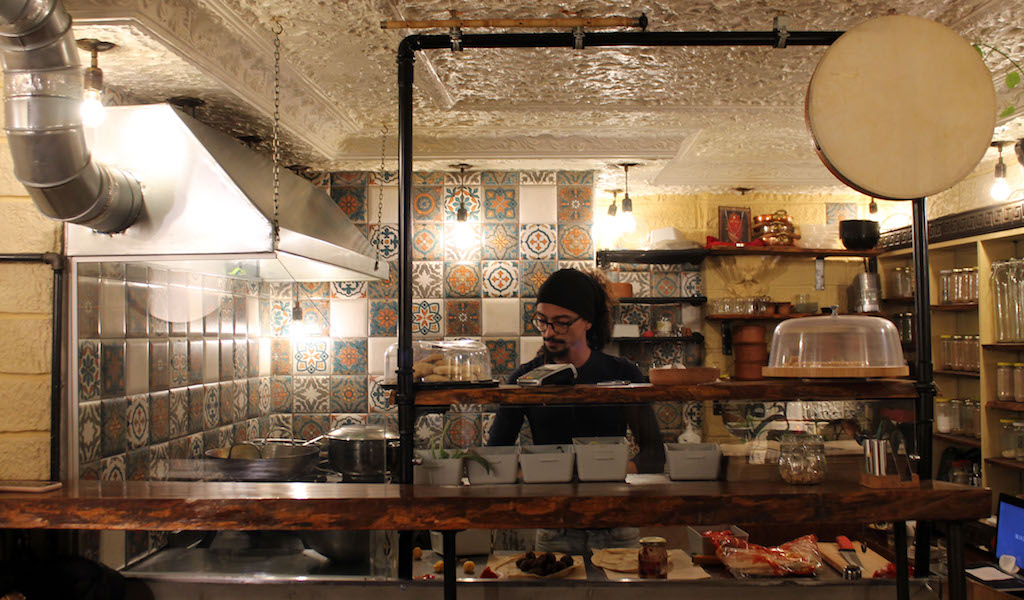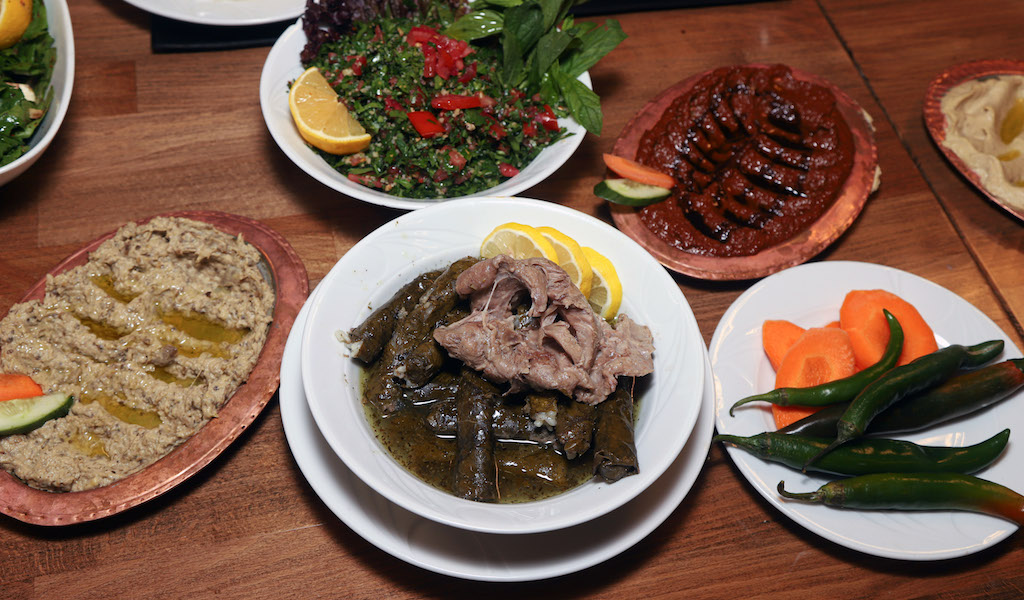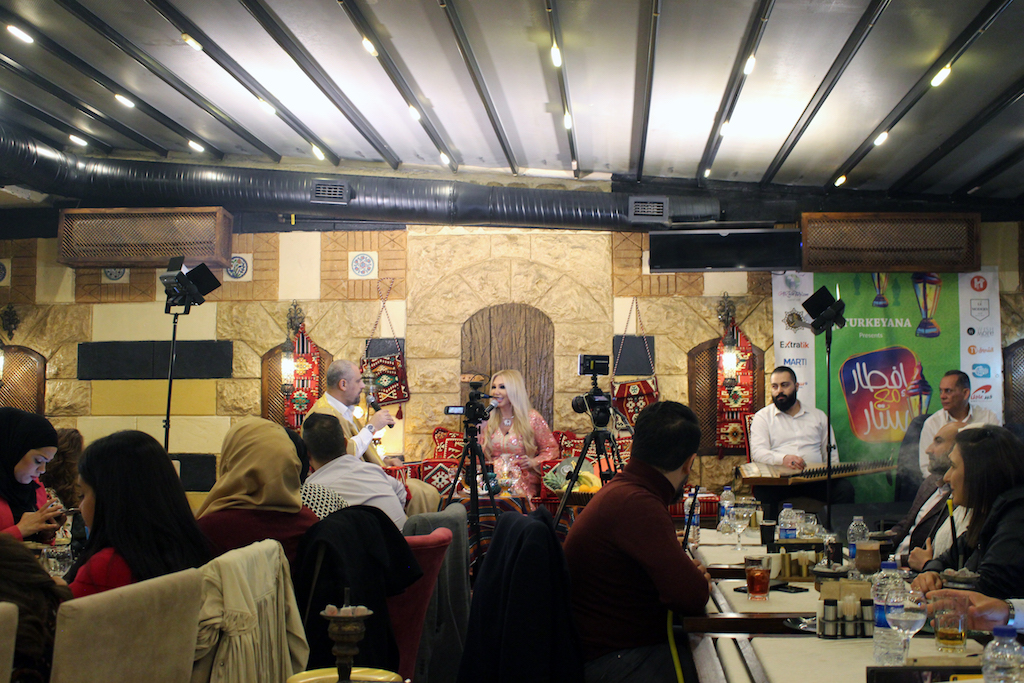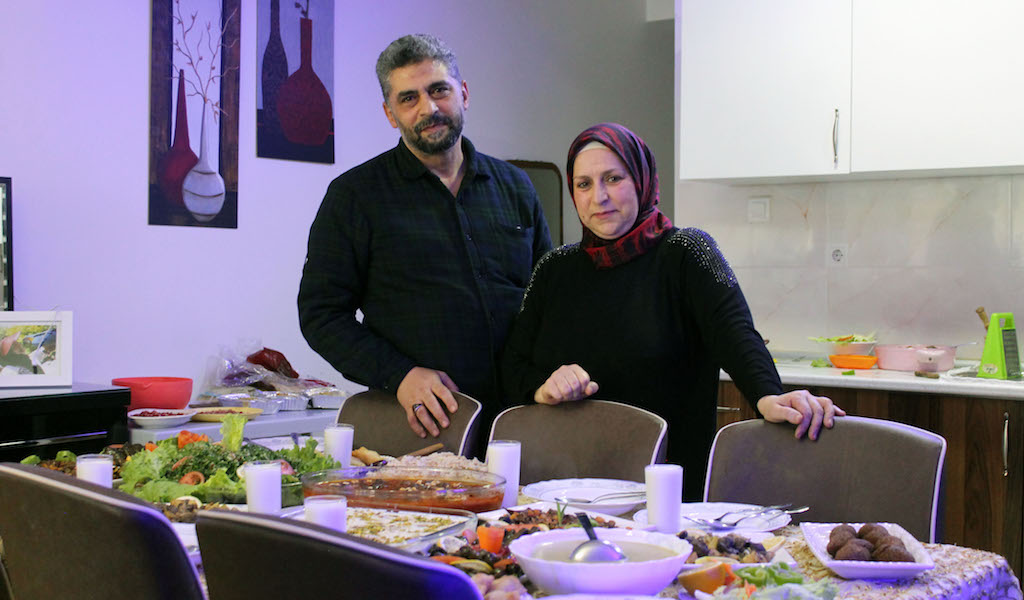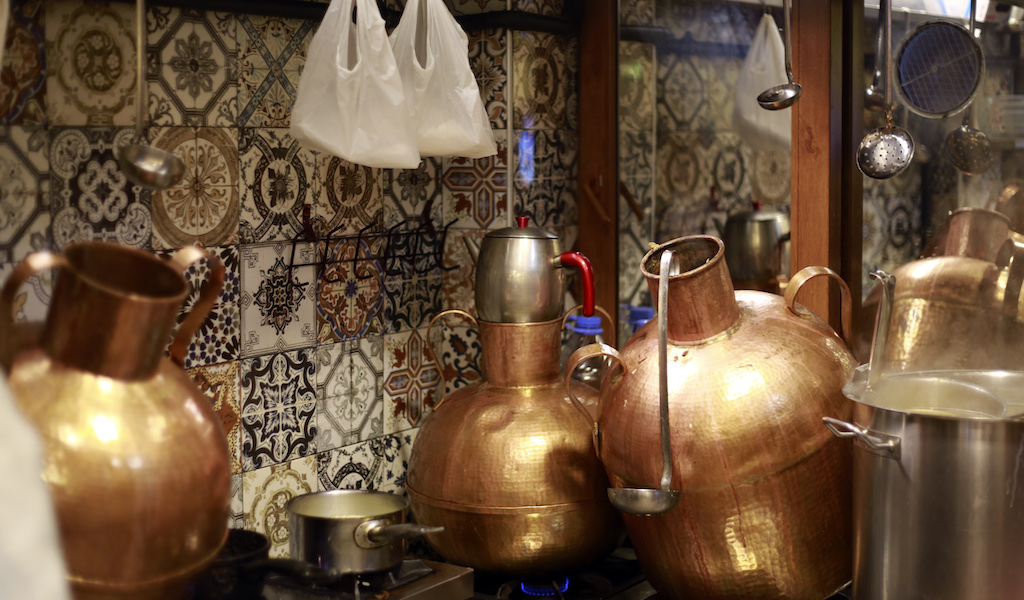We can't find the internet
Attempting to reconnect
Something went wrong!
Hang in there while we get back on track
Search results for "Dima Al Sayed"
Istanbul
Yalla Falafel: Green Revolution
A commuter hub right on the Bosphorus, Beşiktaş courses with energy. In addition to the masses streaming on and off the ferries and the cars inching up and down the steep thoroughfare of Barbaros Boulevard, the neighborhood is overrun with students – Bahçeşehir University sits a few steps from the main ferry terminal. Of the many restaurants and coffee shops catering to the large student population, Yalla Falafel, a tiny corner spot, offers something different: vegetarian fare with Lebanese flavors. Judging by the many students who buzz in and out, this lighter food is preferred after a long day of studying and classes.
Read moreIstanbul
Vezir Han: Rebuilding Aleppo in Istanbul
Khan al-Wazir is a remnant of Aleppo’s Ottoman past: In the late 17th century, the Ottoman governor of Aleppo commissioned the construction of this large caravanserai (in fact, its name means “caravanserai of the minister”), a building that housed both merchants and travelers. In 21st-century Istanbul, the former capital of the Ottoman Empire, a new Khan al-Wazir has cropped up, this one providing a different type of comfort: Aleppian cuisine. “I wanted to give my restaurant this special name, which refers to the ancient link between Aleppo and Istanbul,” said Hasan Douba, when asked why he chose Vezir Han, the Turkish rendering of Khan al-Wazir, as the name for his restaurant in the Fatih neighborhood.
Read moreIstanbul
Haritna: A Tent for Ramadan (and Beyond)
On the walls at Haritna Restaurant are homages to simple sights: a large gate, ancient Damascene windows – it’s a scene that hopes to inspire the very particular feeling of sitting in the middle of a Damascus square, down a well-trodden, old lane. For in Arabic, haritna means “our lane.” Also a colloquial term for neighborhood, Haritna evokes a sense of home for those now living far away. In fact, owner Loay Bakdash, originally from Damascus himself, had dreamed of opening such a restaurant while working as a civil engineer in Saudi Arabia. But he didn’t want it to be a place where people would just come and eat. “I wanted the customers to feel that they are in one of Damascus’ neighborhoods, among their acquaintances in a family-friendly atmosphere,” he says.
Read moreIstanbul
Fatma's Sweets: Carrying On, With Cakes
Like most Syrians who fled their war-ravaged country and made their way to Turkey, Fatma Jabal, a 19-year-old from Aleppo now living in Istanbul, had to get creative in order to make a living. With a baby boy to take care of and her husband struggling to provide for their family while working as a carpenter, Fatma tapped into something she’s been doing since she was a child: baking cakes and cookies. Making desserts had been something Fatma has loved from early on growing up in Aleppo, which she left in 2014 in the midst of the worsening conflict there. For her, each treat she bakes is a work of art that just happens to be edible. “The first thing I did in the kitchen was sweets,” she says. But Fatma realized she needed to develop her budding baking prowess to start charging customers.
Read moreIstanbul
Kitchen Rebuild: Yusuf and Samar’s Syrian Home Cooking
While home cooks preparing food for their families are revered and restaurants occupy an important place in the social fabric, food businesses run out of individual homes often carry negative connotations in Middle Eastern societies. Many would assume that the person making these meals is jobless, uneducated, in dire need of money, or some combination of the three. But sometimes major societal changes – like, for example, a war and resulting refugee crisis – shift perceptions, and something once viewed with skepticism becomes a path forward. That is increasingly the case for Syrians in Istanbul, who have been forced to flee from their homeland and take up residence in a country where they barely know the language, culture or people.
Read moreIstanbul
Bouz Al-Jidi: Gateway to Damascus
On a side street in Istanbul’s Fatih district, a neighborhood now brimming with Syrians, a small restaurant makes many passers-by do a double take – the 1960s-style façade looks like something straight out of Damascus. Upon closer inspection, they would see a man inside standing in front of a flame-kissed tandoor, the same one used to bake Damascene bread. When they read the name of the restaurant – Bouz Al-Jidi, the same name to crown a famous Damascene restaurant – it cements their hunch that they have found a gateway to old Damascus. The interior of the restaurant is decked out in traditional Damascene style, with a turquoise and dark green color palette and small wooden tables surrounded by wooden handmade chairs made of bamboo and straw.
Read more